#Charlotte Cornwell
Text

Sian Phillips, Joanna Lumley, Marjorie Bland, Niall Buggy, Ron Cook, Charlotte Cornwell, Greg Hicks, Gwen Humble & Harold Pinter (Director) – Complete Signed Theatre Programme – ‘Vanilla’ – The Lyric Theatre, London – 1990
#Sian Phillips#Joanna Lumley#Marjorie Bland#Niall Buggy#Ron Cook#Charlotte Cornwell#Greg Hicks#Gwen Humble#Harold Pinter#Theatre Programme#Vanilla#The Lyric Theatre#London#1990#1990s#1900s#Playbill#Jane Stanton Hitchcock
1 note
·
View note
Text

Charlotte Cornwell, Julie Covington and Rula Lenska in "Rock Follies"
1 note
·
View note
Text
thinkin about the imaginary timeline where antonia sharpe and fanny and charlotte aubrey are friends again...
#em is posting about sharpe#aubreyad#julia's post reminded me of this and now I am haunted by it...#if we had more characterization for what any of these three are like when they're grown up I'd write a fic about it#(I actually don't know if we get more fanny and charlotte later; haven't made it past thirteen-gun salute yet)#(but I know we don't get any more antonia (sadness forever on account of))#anyway sometimes I ponder it. sometimes I ponder antonia and the aubrey kids going on little adventures together#three girls raised by soldiers and sailors (and sophy also) and consequently they're a little odd for society#brigid also there because we are brigid maturin enthusiasts on this here blogge#(maybe even richard hornblower if we wanted to get really wacky with it...)#and. andandand. also I think they should grow up to be gay and butch also. but that is me making things up out of hand#then again if I can make up what william bush's sisters are like solely off the mention that he has four sisters then I get to do this also#sorry cornwell/pob/forester/&c it's my sandbox now and I'll put lesbians in it if I damn well please :3
15 notes
·
View notes
Text
Book Review: Reader, I Murdered Him by Betsy Cornwell
Book Review: Reader, I Murdered Him by Betsy Cornwell
A YA romp told from the perspective of Mr. Rochester’s ward gives a new view of both Jane Eyre and London’s queer underground.
Summary:Adéle grew up watching her mother dance in Le Moulin in Paris but soon found herself sent away to England with the man her mother said was her father. Mr. Rochester. Soon she meets her governess Jane Eyre and begins her own series of adventures.
Review:If you…
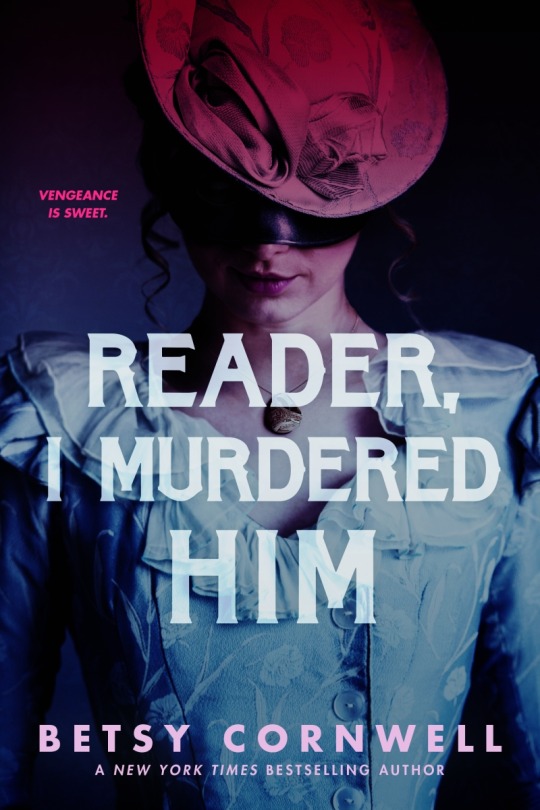
View On WordPress
#betsy cornwell#book#book review#charlotte bronte#historic#jane eyre#lgtbtqia+#london#reader i murdered him#Review#sapphic#sapphic read#YA
0 notes
Text
EXCLUSIVE: One year ago we told you that a second season of John le Carré adaptation The Night Manager was quietly being developed under the codename Steelworks.
Now, Deadline can reveal that the BBC and new co-pro partner Amazon have gone big on a supercharged two-season order of the thriller, with Tom Hiddleston returning to lead, Hugh Laurie coming back as EP and with a new director in I Hate Suzie’s Georgi Banks-Davies. A third season has also been greenlit. David Farr returns as writer and Stephen Garrett is showrunner.
The Night Manager Season 2 will begin filming later this year and will pick up with Hiddleston’s Jonathan Pine eight years after the explosive finale of Season 1, going beyond the original book, which was written by the celebrated British writer in 1993. Additional plot details are being kept under wraps and there is not yet confirmation as to whether EP Laurie’s Richard Roper, who was last seen in the back of a paddy wagon driven by arms buyers who were not best pleased with him, will return to star. Hiddleston will also EP and will discuss in more depth on tonight’s Jimmy Kimmel Live!
Produced by The Ink Factory in association with Character 7, Demarest Films and 127 Wall, and in co-production with Spanish partner Nostromo Pictures, The Night Manager Season 2 was sold to Amazon by Fifth Season. The first was co-produced with AMC.
New director Banks-Davies, a BAFTA-nominee who takes over from Susanne Bier, has credits including I Hate Suzie, Garfield and upcoming Netflix series Kaos.
The Night Manager Season 1 was a huge success, watched by millions and winning multiple BAFTAs, Emmys and Golden Globes including best actor for Hiddleston. Also starring Tom Hollander, Olivia Colman and Elizabeth Debicki, it followed Pine – who ran a luxury hotel in Cairo – as he attempted to infiltrate the inner circle of Roper’s crime syndicate after being hired by Foreign Office task force manager Angela Burr.
The first season was commissioned more than 10 years ago and the show has since been remade in India, lapping the UK version by swiftly having a Season 2 greenlit for Disney+ Hotstar in May last year.
Simon Cornwell and Stephen Cornwell, le Carré’s sons who run The Ink Factory, said Season 1 proved “a landmark moment for the golden era of television – uniting on-screen and behind-the-camera talent at the top of their game – and an audience reception which was beyond our wildest imagining.”
They added: “Revisiting the story of Pine also means going beyond the events of John le Carré’s original work: that is a decision we have not taken lightly, but his compelling characters and the vision David has for their next chapter were irresistible.”
Amazon MGM Studios Head of Television Vernon Sanders said: “We are elated to bring additional seasons of The Night Manager to our Prime Video customers. The combination of terrific source material, the wonderful team at The Ink Factory, a great writer in David Farr, an award-winning director in Georgi Banks-Davies, as well as the talented cast truly make the series the full package.”
Hiddleston said: “The first series of The Night Manager was one of the most creatively fulfilling projects I have ever worked on. The depth, range and complexity of Jonathan Pine was, and remains, a thrilling prospect.”
BBC content boss Charlotte Moore added: “After years of fervent speculation I’m incredibly excited to confirm that The Night Manager is returning to the BBC for two more series.”
The Night Manager series two is created and executive produced by Farr, based on the characters created by le Carré. Additional executive producers include Garrett for Character 7, Banks-Davies, Laurie and Hiddleston; Joe Tsai and Arthur Wang for 127 Wall; Stephen and Simon Cornwell, Michele Wolkoff, and Tessa Inkelaar for The Ink Factory; Adrián Guerra for Nostromo Pictures; William D. Johnson for Demarest Films, Nick Cornwell, Susanne Bier, Chris Rice for Fifth Season and Gaynor Holmes for the BBC.
#tom hiddleston#the night manager#seasons 2 and 3#official#jonathan pine#hugh laurie#booked and busy
96 notes
·
View notes
Text
The fantasy in modern Arthuriana (2)
This is a loose translation of Claire Jardillier’s article “Les enfants de Merlin: le merveilleux médiéval revisité” (The children of Merlin: Medieval magic revisited), for Anne Besson’s study-compilation.
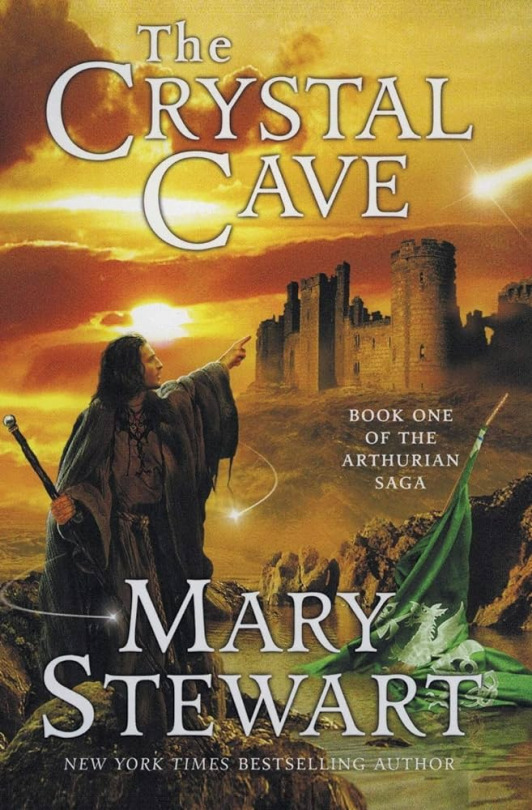
II/ Wizards and witches
The fantastical elements within modern rewrites are often embodied in the most visible way by a few key characters. First and foremost among this magical cast is, of course, Merlin the enchanter, but also regularly the bard Taliesin, despite his lesser presence within the Matter of Britain. Taliesin indeed only appears obviously tied to Arthur within the Welsh sources, especially “Preiddu Annwn”, where he is part of the expedition led by Arthur to steal away the cauldron of resurrection from the Otherworld. We can make the hypothesis that is it because of the historical rewrites of the Arthurian legends that the character of Taliesin gained such an importance, since it is in the Welsh sources that he is most frequently seen, sources that modern rewriters especially love due to judging them more ancient and thus more “authentic” and more Celtic than the chivalry romances and knighthood romans of France and England. Since Wales resisted more strongly to the Saxon invader, then to the Normand influence, modern novelists like to use the “Mabinogion” and the Welsh poems to historicize their Arthur. Taliesin usually stays within his traditional role of bard, in accord to the historical and bibliographical information we have about him. While quite brief, these information naturally designate him as the symbol of the Arthurian legend within a “realistic” rewriting, as a character between the history and the myth.
[In the “Hanes Taliesin” mainly, translated by Lady Charlotte Guest and which follows her “Mabinogion” translations, we discover the two births of Gwyon Bach/Taliesin, is exploits as a bard within the court of prince Elphin, and some of his poems. The historical Taliesin seems to have been a bard at the court of Urien Rheged during the 6th century, and the poems attributed to him were preserved within the “Llyfr Taliesin” (The Book of Taliesin). It notably contains the famous “Cat Godeu” (Battle of the Trees) and the previously mentioned “Preiddu Annwn”. These Welsh poems, like many others, were translated and published by William F. Skene within his “Four Ancient Books of Wales”]
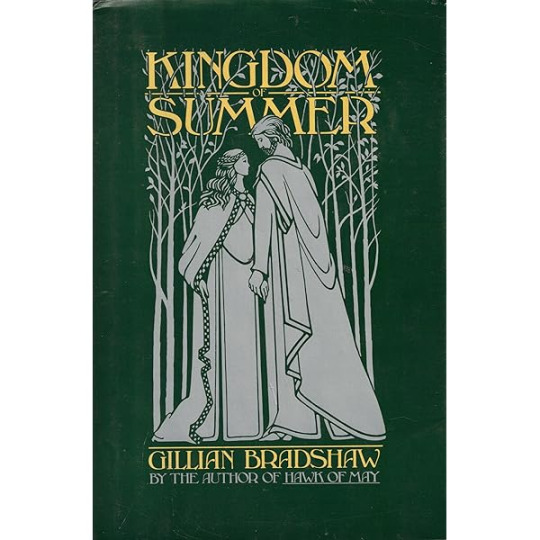
As such, within Fay Sampson’s “Daughter of Tintagel” cycle he becomes one of the five narrators that relate the life of Morgan. A first-person narration that give a voice to a secondary character of the medieval corpus is a fundamental trait of modern Arthurian literature : as such, we can hear Kai, Pelleas, Bohort, Rhys or Bedwyr, characters whose point of view is rarely given in legends, alongside the manifestation of more novel characters, such as Derfel, a shadowy warrior turned saint in the 6th century who narrates Bernard Cornwell’s “Warlord Chronicles”. [Respectively, Kai is heard within Phyllis Ann Karr’s The Idylls of the Queen and John Gloag’s Artorius Rex ; Pelleas within Stephen R. Lawhead’s Arthur and Courtway Jones’ In the Shadow of the Oak King ; Bohort within Dorothy Jane Roberts’ Launcelot my Brother ; Rhys within Gillian Bradshaw’s Kingdom of Summer ; Bedwyr within Catherine Christian’s The Sword and the Flame and Stephen R. Lawhead’s Arthur.]
Within Stephen Lawhead’s works, the role of Taliesin is more developed since he becomes the father, and so the precursor of Merlin (within Marion Zimmer Bradley’s, he is Merlin’s first incarnation). In his trilogy, the bard Talesin paves the way for Merlin, who will surpass his father in his role as the companion of the major hero, Arthur king of Britain. It is precisely this dimension that is often used by modern Arthurianists. [Stephen R. Lawhead wrote in reality five novels, the last two being a flash-back to episodes from between book 2 and 3. This Arthurian cycle is especially concerned with the questions of filiation, legitimacy and predestination. As such, Taliesin announces and foreshadow the coming of his son, a sort of messiah for the Britons, but Merlin himself works for the coming of Arthur, the savior of Britain as much on a spiritual level (the writings of Lawhead are distinctly Christian in tone) as on a political level. It is probably why we also see here a weird and exceptional element introduced, as Arthur is made the posthumous son of Aurelius, and not the bastard of Uther. Here Arthur is the product of an union blessed by the Church, and as such he descends from the first High-King, not from his replacement out of a “side-branch” of the family.]
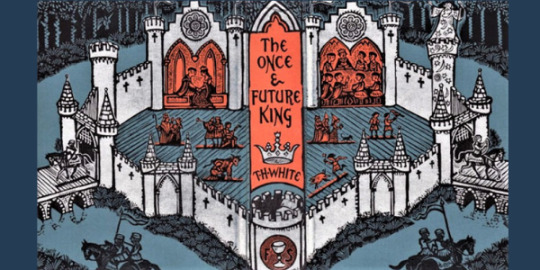
We also have to note that modern rewrites love to tell what happened during the life of characters in the form of prequels – in this case, the youth of Merlin, which is rarely detailed in the Middle-Ages outside of his birth and his encounter with Vortigern. It was the case within Mary Stewart, the first author who was concerned with the wizard’s youth, and who sems to have deeply marked modern Arthurianists, since the same pattern can be found in other novels, including those of Stephen Lawhead. This concern with “what happened before” is not exclusively Arthurian, and can be seen within other contemporary sagas – Star Wars, Indiana Jones, Blueberry… It is a tradition as old as the various “Childhoods” texts of the Middle-Ages. [Mary Stewart wrote “The Crystal Cave”, “The Hollow Hills” and “The Last Enchantment”. As a proof of the intertextuality of Arthurian novels, “the last enchantment” is an expression reused and exploited by Bernard Cornwell in the last part of his trilogy, where a dying Merlin, entirely devoured by his own student Nimue, preserves a “last enchantment” to allow Arthur and a few others to escape the battle of Camlan]
Be it Taliesin or Merlin, the first way the question of the magic implants itself within the narrative device is about the relationship between the king and his wizard. The magical element is thus tied to the political power, weighed down by a reality which, if not historical, is at least coherent. This heirloom is directly tied to the medieval sources, even if it is not obvious at first. The idea of an Arthur raised as a boy by Merlin owes much more to T.H. White’s “The Once and Future King” than to the medieval texts, where only a slow and complex evolution allowed the association of those two characters now seen as undividable. [White’s work is a set of five novels, first published separately, then compiled as one work in the 50s, and to which the last novel, The Book of Merlin, was added in 1977. This work is a precursor of all the rewrites that happened from the 60s onward, especially the first book that tells of Arthur’s childhood and his education by Merlin. It was a best-seller, and the adaptation of this first novel into an animated movie by Disney (63’s The Sword in the Stone) amplified its impact]. Indeed, within Geoffroy of Monmouth, Merlin and Arthur follow each other in the text… but never meet. It was within later rewrites, Wave, Lawamon, and in the French “Lancelot-Graal”, that the king and the enchanter will develop a more intimate relationship, culminating within Malory’s Morte Darthur. [In Geoffroy’s tale, the two characters at least never meet within the context of the tale. A doubt is allowed since in most of the manuscripts, Merlin makes a brief apparition at the very end of the “Historia”, where an “angelic voice” talks to Cadwallader, telling him that “God wishes that the Britons stop ruling within Britain until the moment that Merlin prophesized to Arthur” ; this sentence implies that Merlin might have been the king’s prophet, a role that will become more and more obvious in later rewrites]
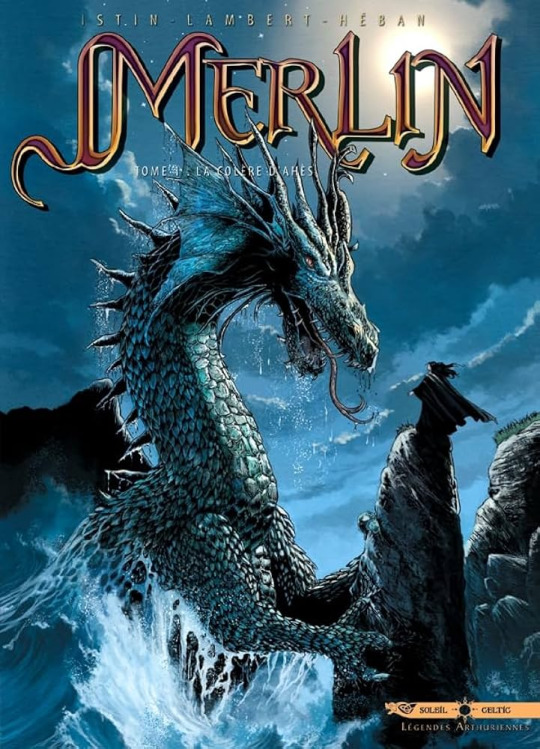
This is due to the two characters, Merlin and Arthur, originally belonging to two distinct traditions. Once they became connected thanks to Geoffroy’s Historia Regum Britaniae, the two characters got closer and closer, and gained many interactions, just as Merlin’s interventions became more and more fantastical. This is very clear when we look at an episode shared by all the medieval Merlinian tales: the moving of the stones of Ireland to create Stonehenge. Within Geoffroy’s, it is a mechanical process. Within Wace, an unexplained way. Finally, within Lawamon, it becomes a powerful spell that makes the stone “as light as feathers”. Modern authors follow this tradition and often reuse this episode, or a similar one, in what we can call “the motif of the dancing stones”. In the same way, within Lawhead’s novel, a child Merlin proves his powers to an assembly of druids by making the stones of a cromlech levitate. Stonehenge plays an important role for Cornwell: it becomes the place of a ghost-filled ceremony during which Merlin gives Excalibur to Arthur. Even among comic books, Merlin makes stones dance before amazed mortals. [It is within the first volume of the BD series “Merlin” by Jean-Luc Istin and Eric Lambert, “La colère d’Ahès” (The Wrath of Ahès). The dancing stones of Istin and Lambert are quite similar to the ones described by Lawhead, and the scenarist confessed having read the “Pendragon Cycle”. We find in this “Merlin” the same habt of syncretizing religions as within Lawhead’s works (father Blaise is a former druid, and offers Merlin as a symbol of the union of religions).]
We find back here what we said before: the historicized Arthurian literature of the 60s-80s greatly deprived the medieval text of their fantasy, and since the 80s-90s we have a slow re-appropriation of the medieval magic within novels that still, however, wish to be historical. In other terms – the stones are dancing again, but they are always dancing in a mentioned 6th century.
Before Lawamon, Merlin only acted during the lifetime of Aurelius and Uther, before disappearing for no reason after Arthur’s birth. However, the encounter between those two historical characters was too tempting to be avoided, and we can see a true shift between Geoffroy and Malory (for example), which today leads to the many tales in which Merlin acts as the teacher, tutor, or even adoptive father of Arthur. This filiation is helped by two elements. On one side, that is an elliptic moment covering Arthur’s childhood in medieval texts, and we go from him as a baby to him as a young fifteen-year old king. [We find within Lawamon the beginning of an explication: child-Arthur was raised by elves at Avalon. This idea was reused by Parke Godwin within the novel “Firelord”.] On the other hand, we can see that all of his next of kin die around the same time. In front of this absence of parents, it is very tempting to remove Ector (the father of Kay and the tutor of the royal child in the tradition) and put in his place a more familiar and impressive character, Merlin the wizard.
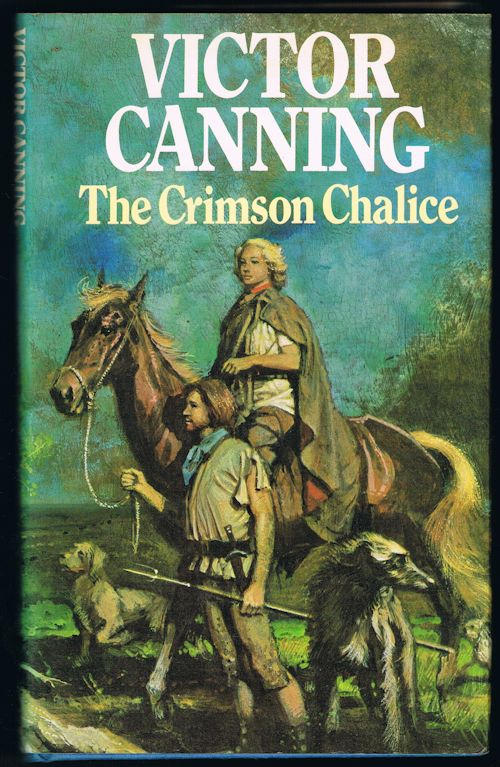
We talked before of the habit of “prequels”: the cyclical temptation of modern novels, which in a way mimics the Arthurian medieval tradition of a condensed and fractioned writing of the whole Arthurian legend (usually in three volumes), favorizes the writing of the origins, of the “before Arthur”. The introduction of Merlin, but also of Taliesin, proves this attraction for what Anne Besson calls an “Arthurian prehistory”. For Stephen Lawhead, the link between the various generations (Taliesin, father of Merlin, Merlin spiritual father of Arthur) insists upon the greatness and the predestination of the king of the Britons, the bearer of Light. Even when the Arthurian tale is limited to a single novel, it is not unusual to see it begin with the generation before Arthur: it was the case with Victor Canning’s “The Crimson Chalice”, where a third of the novel follows the events that led to Arthur’s birth (even though here Arthur’s parents are named Tia and Baradoc, and bear no resemblance to Igraine or Uther).
To all the reasons described above, we must add the fictional temptation of having characters coexisting to allow a powerful confrontation. But this temptation also bears a prevalent trait of the modern Arthurian fiction, and of its dialogue with the sources. Indeed, it is not uncommon to see a rearrangement, to various degrees, of the links that traditionally unite the characters. As such, in most sources Ygerne is the wife of Gorlois and the mother of Arthur, but she can be his half-sister and the mother of Medraud within Rosemary Sutcliff’s “Sword at Sunset”. The same Ygerne becomes Gorlois’ daughter, not his wife, in Stephen Lawhead’s work, as the author plays with the writing of the myth, has his Merlin-narrator laugh about the mad rumors that circulated about the siege of Tintagel “I have even heard it said that Ygerna was Gorlas’ wife – Imagine that!”). The marvelous does not escape this kind of more-or-less extreme shifts: the case of the female characters, of their relationship to magic, and of their role within history is especially revealing.
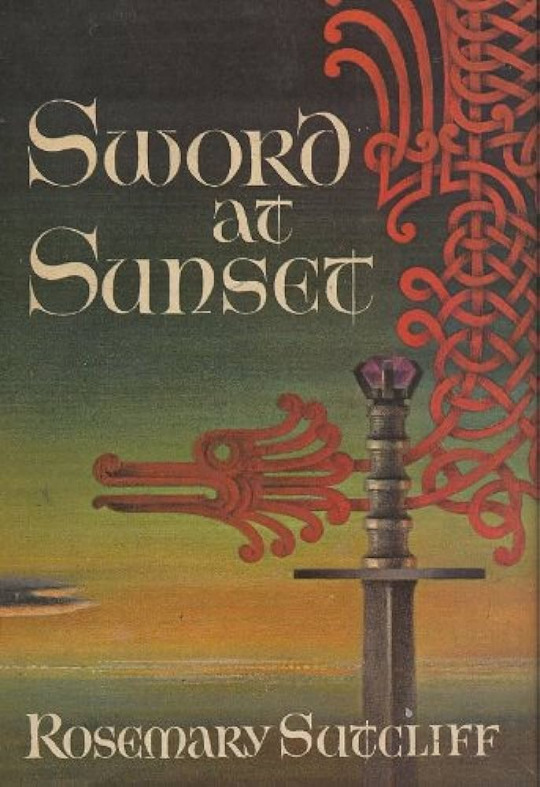
#arthuriana#fantasy#arthurian novel#fantasy novel#arthurian literature#translation#merlin#king arthur#taliesin#magic#arthurian rewrites#merlin the enchanter
10 notes
·
View notes
Text
A recommended list of books I own and read
Bleak House by Charles Dickens
The Secret Garden by Frances Hodgson Burnett
I Never Promised You a Rose Garden by Joanne Greenberg
Girl, Interrupted by Susanna Kaysen
The Glass Castle by Jeannette Walls
The Silver Star by Jeannette Walls
Running with Scissors by Augusten Burroughs
Just Kids by Patti Smith
Fatal Flowers by Rosemary Daniell
Suicide Blonde by Darcey Steinke
The Prince of Lost Places by Kathy Hepinstall
What Remains of Me by Alison Gaylin
Never Look Back by Alison Gaylin
If I Die Tonight by Alison Gaylin
Murder on the Orient Express by Agatha Christie
And Then There Were None by Agatha Christie
I Am the Only Running Footman by Martha Grimes
The Deer Leap by Martha Grimes
The Old Contemptibles By Martha Grimes
The Anodyne Necklace by Martha Grimes
Help the Poor Struggler by Martha Grimes
And Then She Was Gone by Lisa Jewell
Watching You by Lisa Jewell
Invisible Girl by Lisa Jewell
The Truth about Melody Browne by Lisa Jewell
The Night She Disappeared by Lisa Jewell
The Family Upstairs by Lisa Jewell
A Judgment in Stone by Ruth Rendell
A Demon in my View by Ruth Rendell
The Accursed by Joyce Carol Oates
The Doll Master by Joyce Carol Oates
Night Gaunts by Joyce Carol Oates
The Female of the Species by Joyce Carol Oates
Pursuit by Joyce Carol Oates
High Lonesome by Joyce Carol Oates
I Know You Know by Gilly Macmillan
The Nanny by Gilly Macmillan
The Girl on the Train by Paula Hawkins
Into the Water by Paula Hawkins
A Slow Fire Burning by Paula Hawkins
She’s Come Undone by Wally Lamb
The Lovely Bones by Alice Sebold
White Oleander by Janet Fitch
The Secret Life of Bees by Sue Monk Kidd
The Black Dahlia by James Ellroy
Over Tumbled Graves by Jess Walter
Dark Tales by Shirley Jackson
The Haunting of Hill House by Shirley Jackson
We Have Always Lived in the Castle by Shirley Jackson
The Girl with the Dragon Tattoo by Stieg Larsson
The Girl who Played with Fire by Stieg Larsson
The Da Vinci Code by Dan Brown
Angels & Demons by Dan Brown
Lost Souls by Lisa Jackson
Interview with the Vampire by Anne Rice
All Around the Town by Mary Higgins Clark
Southern Cross by Patricia Cornwell
Dead Run by Erica Spindler
Carrie by Stephen King
The Shining by Stephen King
Bag of Bones by Stephen King
The Stand by Stephen King
The Exorcist by William Peter Blatty
The Right Hand of Evil by John Saul
A Season in Purgatory by Dominick Dunne
The Girl Before by J.P. Delaney
Luckiest Girl Alive by Jessica Knoll
The Favorite Sister by Jessica Knoll
Bright Young Women by Jessica Knoll
Dream Girl by Laura Lippman
Every Secret Thing by Laura Lippman
Sharp Objects by Gillian Flynn
Gone Girl by Gillian Flynn
A Place Called Freedom by Ken Follett
The Third Twin by Ken Follett
Vanish by Tess Gerritsen
Good Girls Lie by J.T. Ellison
When Shadows Fall by J.T. Ellison
Fahrenheit 451 by Ray Bradbury
Flowers for Algernon by Daniel Keyes
Jane Eyre by Charlotte Bronte
Villette by Charlotte Bronte
The Picture of Dorian Gray by Oscar Wilde
Wuthering Heights by Emily Bronte
The Turn of the Screw & Daisy Miller by Henry James
The Good Girl by Mary Kubica
Walk Two Moons by Sharon Creech
Crank by Ellen Hopkins
Thirteen Reasons Why by Jay Asher
Go Ask Alice by Anonymous
The Gemma Doyle trilogy by Libba Bray
Coraline by Neil Gaiman
The Virgin Suicides by Jeffrey Eugenides
The Hunger Games series by Suzanne Collins
Flowers in the Attic by V.C. Andrews
Petals on the Wind by V.C. Andrews
Garden of Shadows by V.C. Andrews
My Sweet Audrina by by V.C. Andrews
The Cutler series by V.C. Andrews
The Logan series by V.C. Andrews
The Hudson series by V.C. Andrews
Ruby by V.C. Andrews
Pearl in the Mist by V.C. Andrews
The 9th Girl by Tami Hoag
The Elizas by Sara Shepard
The Lying Game by Sara Shepard
Wait for Me by Sara Shepard
Nowhere Like Home by Sara Shepard
The Catcher in the Rye by J.D. Salinger
Nine Stories by J.D. Salinger
Anthem by Ayn Rand
Tropic of Cancer by Henry Miller
A Spy in the House of Love by Anais Nin
Elmer Gantry by Sinclair Lewis
The Bell Jar by Sylvia Plath
Steppenwolf by Hermann Hesse
The Scarlet Pimpernel by Baroness Orczy
The Great Gatsby by F. Scott Fitzgerald
Tess of the d’Urbervilles by Thomas Hardy
Rebecca by Daphne du Maurier
Ethan Frome by Edith Wharton
Summer by Edith Wharton
Mrs. Dalloway by Virginia Woolf
To the Lighthouse by Virginia Woolf
The Heart is a Lonely Hunter by Carson McCullers
My Dark Vanessa by Kate Elizabeth Russell
Catherine House by Elisabeth Thomas
Never Let Me Go by Kazuo Ishiguro
Give Me Your Hand by Megan Abbott
The It Girl by Ruth Ware
In a Dark, Dark Wood by Ruth Ware
The Turn of the Key by Ruth Ware
The Woman in Cabin 10 by Ruth Ware
The Death of Mrs. Westaway by Ruth Ware
Where the Crawdads Sing by Delia Owens
Fight Club by Chuck Palahniuk
The Woman in the Window by A.J. Finn
The Outsiders by S.E. Hinton
The Butterfly Girl by Rene Denfeld
The Handmaid's Tale by Margaret Atwood
The Testaments by Margaret Atwood
The Blind Assassin by Margaret Atwood
Cat's Eye by Margaret Atwood
The Silent Wife by A.S.A. Harrison
Small Sacrifices by Ann Rule
If You Really Loved Me by Ann Rule
Green River, Running Red by Ann Rule
Every Breath You Take by Ann Rule
The Blooding by Joseph Wambaugh
Slenderman by Kathleen Hale
Breaking Blue by Timothy Egan
In Cold Blood by Truman Capote
An Anonymous Girl by Greer Hendricks and Sarah Pekkanen
You Are Not Alone by Greer Hendricks and Sarah Pekkanen
4 notes
·
View notes
Photo

Hospital Billing from A to Z Charlotte L. Kohler, RN, CPA, CVA, CRCE-I, CPC, ACS, CHBC With Kohler HealthCare Consulting, Inc., associates Catherine Clark, CPC, CRCE-I Darrin Cornwell, CRCS-I Janet Ellis, RN, BSN, MS Dawn Doll Homer, CPC, CRCS-I, CDC Daria Malan, RN, LNHA, MBA, RAC-CT(R) John Ninos, MS, MT(ASCP), CCS Robin Stover, RN, BSBA
0 notes
Photo

CHARLOTTE CORNWELL (1949-Died January 16th 2021,at 71.Cancer).British actress who appeared in such films,as The Krays,Stardust,The Russia House & White Hunter,Black Heart,and tv series such as The West Wing,The Mentalist,A Touch of frost, Lovejoy,Midsomer Murders,and Silent Witness. https://en.wikipedia.org/wiki/Charlotte_Cornwell
0 notes
Photo
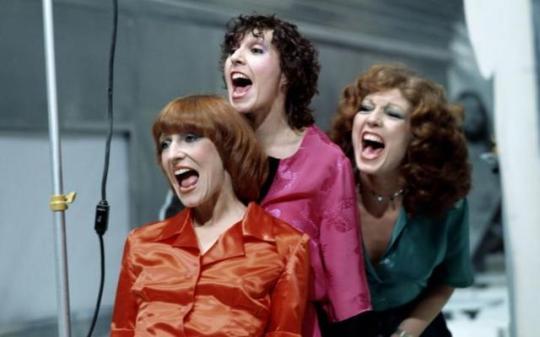
Rock Follies (1976)
6 notes
·
View notes
Text

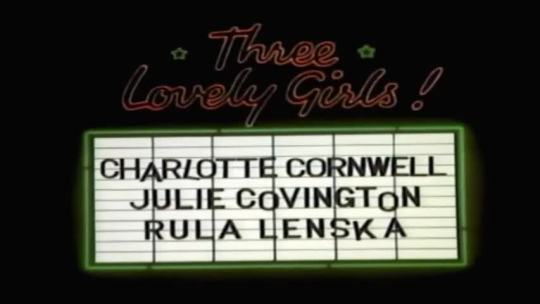
Rock Follies - ITV - February 24, 1976 - December 6, 1977
Musical Drama (12 episodes)
Running Time: 60 minutes
Stars:
Rula Lenska as Nancy "Q" Cunard de Longchamps (series 1 & 2)
Julie Covington as Devonia "Dee" Rhoades (series 1 & 2)
Charlotte Cornwell as Anna Wynd (series 1 & 2)
Sue Jones-Davies as Rox (series 2)
Emlyn Price as Derek Huggins (series 1)
James Warwick as Nigel (series 1)
Christopher Neil as Dave (series 1)
Michael Angelis as Stavros (series 1)
Vivienne Burgess as Mrs. Wynd (series 1)
Angela Bruce as Gloria (series 1)
Billy Murray as Spike (series 1 & 2)
Michael J. Shannon as Carl (series 1)
Stephen Moore as Jack (series 1)
Bill Stewart as Bob (series 1)
David Dixon as Rob Fury (series 1)
Simon Jones as Juan (series 1)
Beth Porter as Kitty Schreiber (series 2)
Gregory Floy as David Maxwell (series 2)
Derek Thompson as Harry Moon (series 2)
Denis Lawson as Ken Church (series 2)
"Little" Nell Campbell as Sandra (series 2)
Sam Dale as Rawls (series 2)
Bob Hoskins as Johnny (friend of Kitty, series 2)
Trevor Ward as The Angel (series 2)
Tim Curry as Stevie Streeter (series 2)
1 note
·
View note
Photo
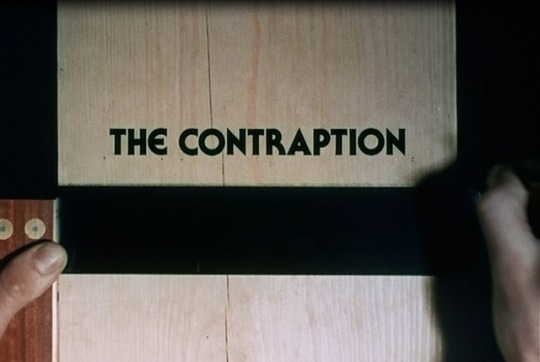
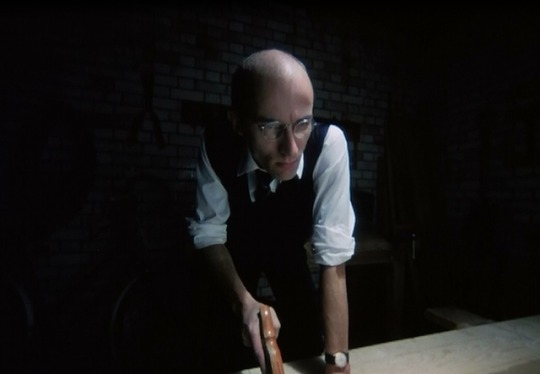
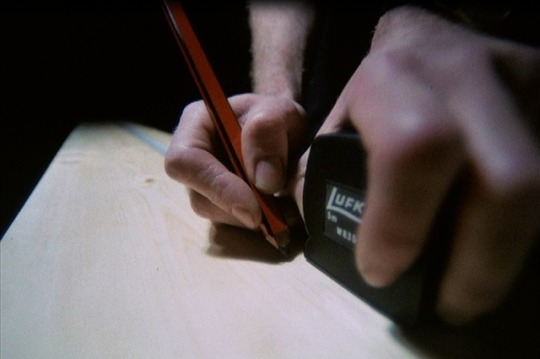
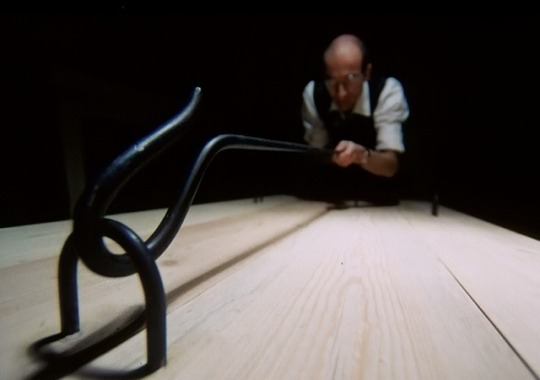


The Contraption (1977)
“Of all the men in the world, I went and married a bloody mouse.”
#the contraption#short film#art film#richard o'brien#charlotte cornwell#james dearden#1977#british cinema#films i done watched
8 notes
·
View notes
Text
The Night Manager will be returning for two more seasons with Tom Hiddleston at the helm once again, it has been reported.
The renewal of the hit adaptation of John le Carré’s 1993 novel, which aired to great fanfare eight years ago, has been greenlit by Amazon Prime and the BBC, according to Deadline.
It is understood that the new seasons about the hotel-manager-turned-spy will be filmed later this year in London and South America.
According to reports, David Farr – who wrote the original series – has been brought back to write season two.
The first series, which won two Emmys and three Golden Globes, featured an impressive cast including Olivia Colman, Elizabeth Debicki, Tom Hollander and David Harewood.
It followed Hiddleston as Jonathan Pine, the former British soldier who is recruited by the manager of a Foreign Office taskforce to infiltrate an arms dealer’s inner circle while he is the night manager of a luxury Cairo hotel.
The series quickly became one of the top-rated UK dramas of 2016 and spawned a number of subsequent le Carré adaptations from The Ink Factory, the production company run by le Carré’s sons Simon and Stephen Cornwell.
The new adaptation will be set in the present day, according to Deadline, and will follow Hiddleston’s Pine facing a new and more deadly challenge after being informed that arms dealer Richard Roper – played by Hugh Laurie – is dead.
Laurie, Colman and Hiddleston all won Golden Globes for their performances in the 2016 spy thriller, which became an international success and even led to rumours at the time that Hiddleston, 43, could be the next James Bond.
While the Bond rumours may have been put to bed, it remains to be seen where the plot may take Pine, seeing as Le Carré‘s novel has no sequel.
When Laurie was asked in 2016 whether the series would return, he said: “It’s based on a novel, we’ve got to the end of the novel and John le Carré has yet to write another novel. So in cold practical terms, no, we’re done.”
Le Carré, who died in 2020, took a very hands-off approach to the first series, but was said to be pleasantly surprised by the alterations Farr made to his novel for the script.
Charlotte Moore, the BBC TV chief, told The Telegraph in 2017 that “Le Carré is very involved” in discussions about the next series, saying: “We wouldn’t be talking with them if he didn’t think it was a good idea.”
Announcing the new series, Ms Moore said: “After years of fervent speculation I’m incredibly excited to confirm that The Night Manager is returning to the BBC for two more series.”
“Of course he wants to take part in it, it’s his work. He will definitely be involved in what we do next,” she added.
The Telegraph has contacted Le Carré’s estate for comment on the announcement of the new seasons.
Previously, Susanne Bier, who won an Emmy for directing the first series, revealed that scripts for a second instalment were “slowly being developed”, but she said writers were wary about being able to create the same hit again.
Elizabeth Debicki, Tom Hiddleston, Susanne Bier and Hugh Laurie at the premiere of the first season
Elizabeth Debicki, Tom Hiddleston, Susanne Bier and Hugh Laurie at the premiere of the first season Credit: Michael Tran/FilmMagic
Farr agreed with this sentiment at the time, telling Variety in 2016 that he was “not keen” to do a second series, adding: “I liked the fact that the story ended where the story ended.
“But that’s entirely personal. Given the characters, there is a potential for something more to happen, and I’m sure someone could find the right idea. But for me it’s done. My simple feeling is that I wouldn’t be able to make the next one as good.”
Hiddleston, 43, will be returning to executive produce the new seasons as well as play Pine.
The British actor said: “The first series of The Night Manager was one of the most creatively fulfilling projects I have ever worked on. The depth, range and complexity of Jonathan Pine was, and remains, a thrilling prospect.”
Simon and Stephen Cornwell said season one proved “a landmark moment for the golden era of television – uniting on-screen and behind-the-camera talent at the top of their game – and an audience reception which was beyond our wildest imagining”.
“Revisiting the story of Pine also means going beyond the events of John le Carré’s original work: that is a decision we have not taken lightly, but his compelling characters and the vision David [Farr] has for their next chapter were irresistible,” they added.
Vernon Sanders, the Amazon MGM Studios head of television, added: “We are elated to bring additional seasons of The Night Manager to our Prime Video customers.
“The combination of terrific source material, the wonderful team at The Ink Factory, a great writer in David Farr, an award-winning director in Georgi Banks-Davies, as well as the talented cast truly make the series the full package.”
78 notes
·
View notes
Photo

MUSES: MAIN.
muse. ┊ addison montgomery!
muse. ┊ b’elanna torres!
muse. ┊ carlton lassiter!
muse. ┊ cassie lang!
muse. ┊ charlotte king!
muse. ┊ dex parios!
muse. ┊ eve baird!
muse. ┊ jack pearson!
muse. ┊ jett reno!
muse. ┊ katrina cornwell!
muse. ┊ lorelai gilmore!
muse. ┊ mellie grant!
muse. ┊ rachel duncan!
muse. ┊ siobhan sadler!
muse. ┊ sylvia tilly!
muse. ┊ teddy altman!
#muse. ┊ addison montgomery!#muse. ┊ b’elanna torres!#muse. ┊ carlton lassiter!#muse. ┊ cassie lang!#muse. ┊ charlotte king!#muse. ┊ dex parios!#muse. ┊ eve baird!#muse. ┊ jack pearson!#muse. ┊ jett reno!#muse. ┊ katrina cornwell!#muse. ┊ lorelai gilmore!#muse. ┊ mellie grant!#muse. ┊ rachel duncan!#muse. ┊ siobhan sadler!#muse. ┊ sylvia tilly!#muse. ┊ teddy altman!
1 note
·
View note
Text
(paraphrased) jo/hn mul/aney quotes for each of my main muses bc of who i am as a person.
addison montgomery bc this is just...... painful tbh: “anyone who’s seen me naked and met my parents needs to die,”
b’elanna torres: “oh, well thanks for asking. you know how i’m full of rage?”
charlotte king: “i keep things bottled up and i don’t drink,”
chloe decker: “you know those days where you’re like ‘this might as well happen,’? adult life is already so goddamn weird,”
cj cregg: “i don’t know why it’s a big deal, but i like that i’m six feet tall,”
emily prentiss: “that’s why the MURDER POLICE are here!”
jack pearson: “i keep my emotions right here, and then one day i’ll die,”
jed bartlet: “i got home that night and i went up to my dad and I was like ‘hey! i’m gonna be a democrat!’ and without looking up at me, he just said 'you have the moral backbone of a chocolate éclair.’”
katrina cornwell: “the bar is SO MUCH lower than i’d EVER imagined!”
lorelai gilmore: “i was in connecticut recently, doing white people stuff.”
mellie grant: “[she’s] a smooth and fantastic hillbilly who should be emperor of the united states of america,”
peggy carter: “she does not give a shit what anyone thinks of her in any situation,”
#this is..... what my brain does instead of writing....#▲ muse ╎ addison montgomery!#▲ muse ╎ b’elanna torres!#▲ muse ╎ charlotte king!#▲ muse ╎ chloe decker!#▲ muse ╎ cj cregg!#▲ muse ╎ emily prentiss!#▲ muse ╎ jack pearson!#▲ muse ╎ jed bartlet!#▲ muse ╎ katrina cornwell!#▲ muse ╎ lorelai gilmore!#▲ muse ╎ mellie grant!#▲ muse ╎ peggy carter!
10 notes
·
View notes
Text

here’s a starter call for my muses from MEDICAL SHOWS or who are in the medical profession / have a verse, specify muse (on both ends if you’re a multi) and i’ll write you things!
included muses: addison montgomery, amelia shepherd, april kepner, arizona robbins, charlotte king, cristina yang, lexie grey, mark sloan, meredith grey, teddy altman, ainsley whitly, georgia goodwin, lauren bloom, max goodwin, nic nevin, katrina cornwell, beverly crusher, deanna troi.
#☾ out of character ┊ starter call.#this isn't aLL of them but these are the ones with the vibe that i'm feelin
17 notes
·
View notes